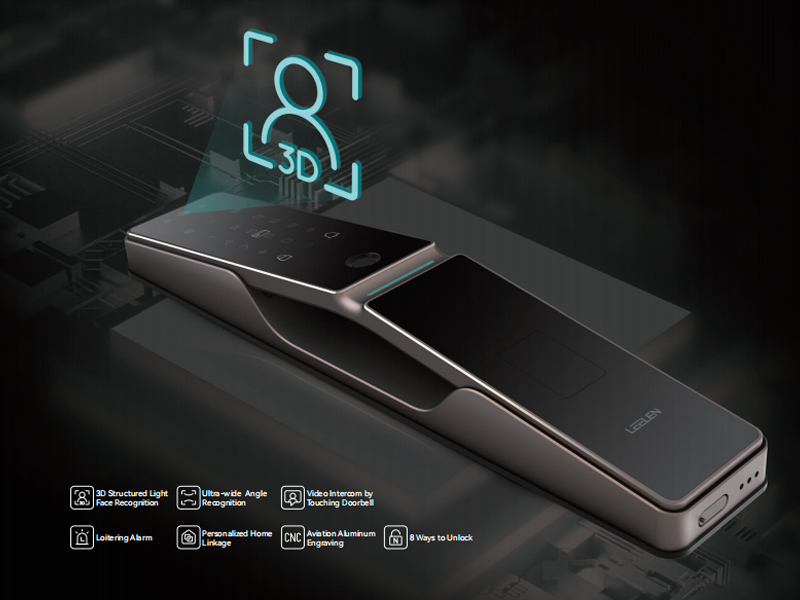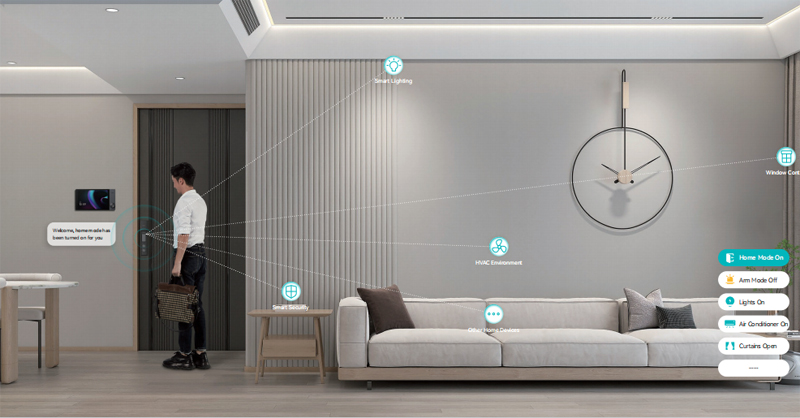Can You Put a Smart Lock on Any Door?
Introduction
In today's digital age, home security has evolved beyond traditional locks and keys. Smart locks offer a convenient and secure way to control access to your home. But can you install a smart lock on any door? The answer is generally yes, but there are a few factors to consider.
Understanding Smart Locks
Smart locks are electronic locks that can be controlled remotely using a smartphone or other connected device. They often come with features like keyless entry, remote access, and integration with other smart home devices.
Types of Doors Compatible with Smart Locks
Single-cylinder deadbolts: These are the most common type of door lock and are compatible with most smart locks.
Double-cylinder deadbolts: These require a key on both the inside and outside of the door. Some smart locks are compatible with double-cylinder deadbolts, but it's essential to check the manufacturer's specifications.
Lever handles: While less common, some smart locks are designed for lever handles.
Factors to Consider Before Smart Lock Installation
Door thickness: Smart locks are typically designed for standard door thicknesses. If your door is unusually thick or thin, you may need to consider additional hardware or consult a professional.
Existing door hardware: Your existing door hardware, such as the backset (the distance from the edge of the door to the center of the bore hole), should be compatible with the smart lock you choose.
Door material: While most smart locks are compatible with wooden doors, some may require additional considerations for metal or fiberglass doors.
Smart Lock Installation Process
Installing a smart lock is generally a straightforward process that can be completed by most homeowners. However, if you're unsure or uncomfortable with DIY projects, it's best to consult a professional.
Remove the existing deadbolt: This usually involves removing screws and potentially drilling out the deadbolt cylinder.
Prepare the door: Ensure the door is properly aligned and the backset matches the smart lock.
Install the smart lock: Follow the manufacturer's instructions to mount the smart lock onto the door and secure it with screws.
Connect the smart lock: Pair the smart lock with your smartphone or other connected device using the manufacturer's app.
Benefits of Smart Locks
Enhanced security: Smart locks offer advanced security features like remote monitoring, automatic locking, and the ability to grant temporary access to guests.
Convenience: Keyless entry eliminates the hassle of carrying and managing physical keys.
Integration with other smart home devices: Many smart locks can be integrated with other smart home devices, such as thermostats and security cameras, for a more connected and convenient living experience.
Energy efficiency: Some smart locks can be integrated with your home's energy management system to help you save energy.
Conclusion
Smart locks are a valuable addition to any home, offering enhanced security, convenience, and integration with other smart home devices. While most doors are compatible with smart locks, it's essential to consider factors like door thickness, hardware, and material before making a purchase. By understanding the types of smart locks, smart lock installation process, and benefits, you can make an informed decision and enjoy the advantages of this modern technology.
FAQs
1. Can I install a smart lock myself?
Yes, most homeowners can install a smart lock with basic DIY skills. However, if you're unsure or uncomfortable, it's best to consult a professional.
2. Do I need a specific type of door for a smart lock?
Most doors, including wooden, metal, and fiberglass, are compatible with smart locks. However, there may be additional considerations for non-standard door thicknesses or materials.
3. Can I control my smart lock from anywhere?
Yes, most smart locks can be controlled remotely using a smartphone or other connected device, allowing you to lock or unlock your door from anywhere in the world.
4. Are smart locks secure?
Smart locks offer advanced security features like encryption, remote monitoring, and automatic locking, making them a secure option for your home.
5.What if I lose my phone or the app stops working?
Most smart locks have backup options, such as physical keys or a mechanical override, in case of emergencies or technical difficulties.


